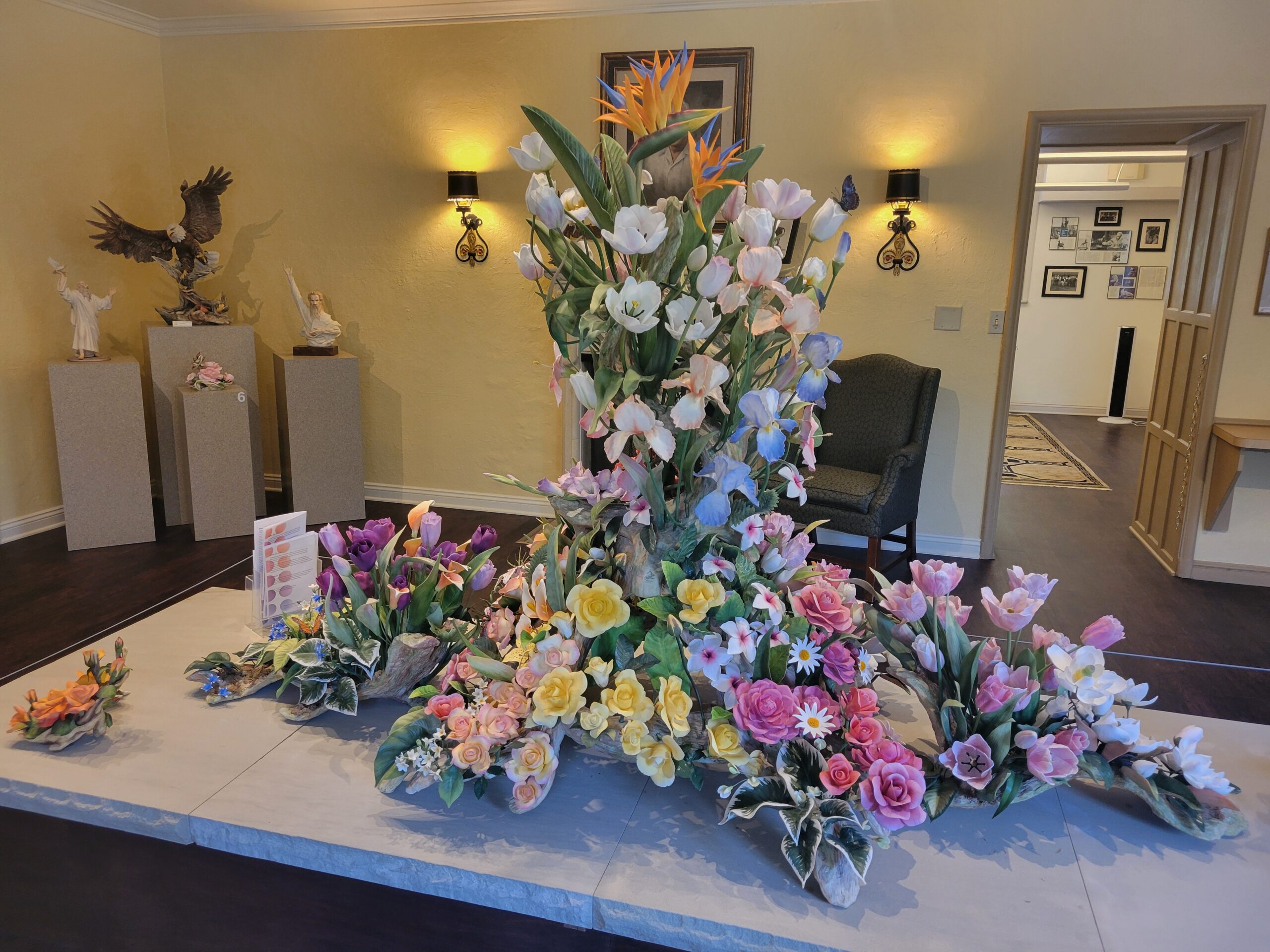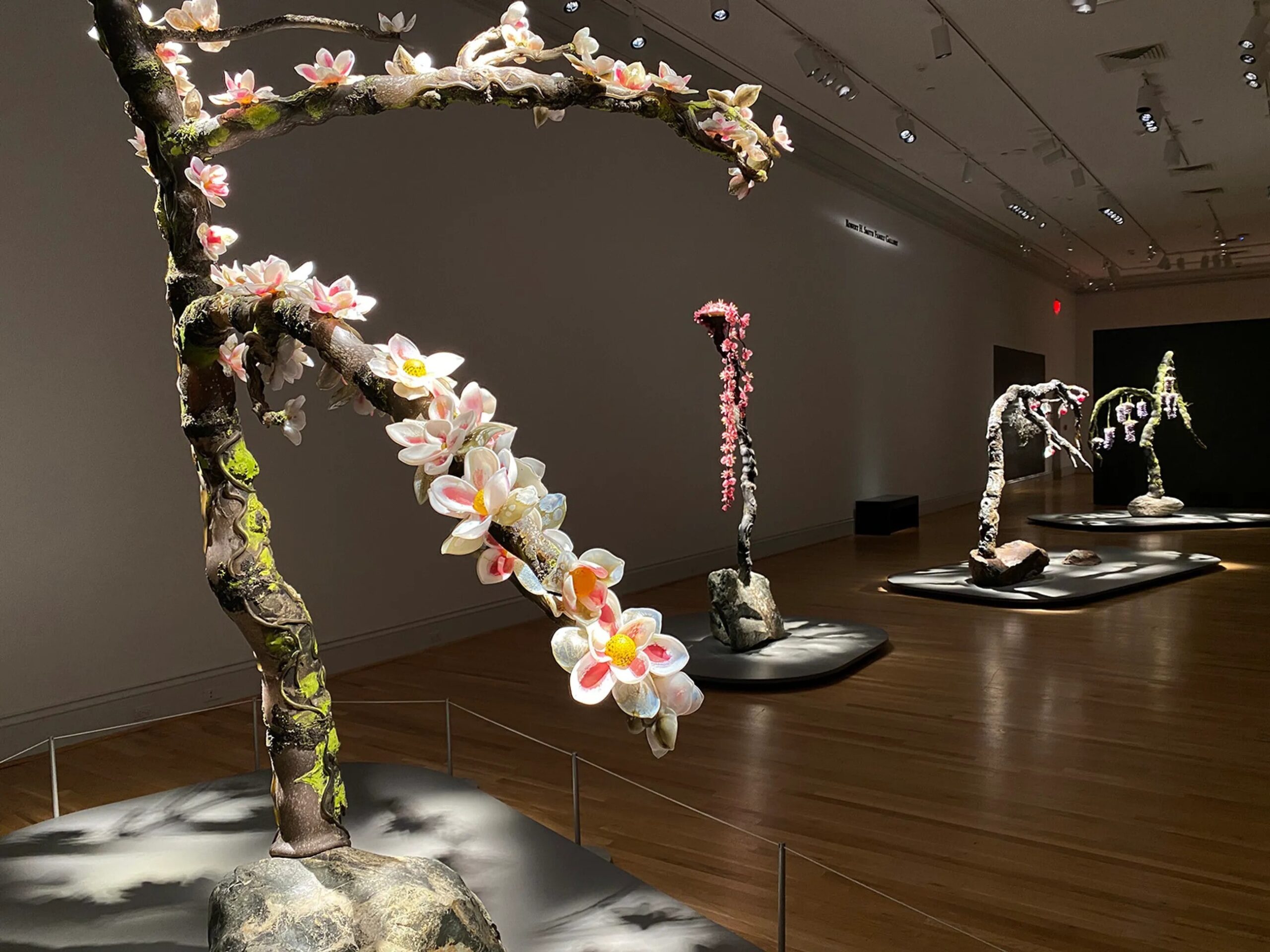
[Image above] Nigerian potter Ladi Kwali is the first woman to appear on Nigerian currency (back of the 20 naira banknote). She is known for blending traditional African pottery with Western studio pottery techniques. Credit: Euro Coins, YouTube
As we near the end of Black History Month in the United States, that does not mean the end of celebrating Black history in 2022.* There are numerous ways to continue celebrating throughout the year, and for those who live the United Kingdom, a trip to Two Temple Place in London is a great choice.
Two Temple Place, known for many years as Astor House, is a building situated near Victoria Embankment in central London, England. It is the first London venue that specifically showcases publicly owned collections from around the U.K.
Since 2011, Two Temple Place has delivered the annual Winter Exhibition Program in partnership with museums and galleries around the country. Body Vessel Clay is the current featured exhibition.
Body Vessel Clay, which runs through April 24, showcases ceramic artwork by three generations of Black women artists working in clay. The exhibition is centered around the seminal Nigerian potter Ladi Kwali and, through Kwali and her female contemporaries, “will reinterpret the line of Kwali’s influence and its resonance on a younger generation of international contemporary women artists working with clay in radical new ways,” according to the exhibition webpage.
The life and pottery of Ladi Kwali
Ladi Kwali was born in the Gwari region of Northern Nigeria in the 1920s. Her name “Ladi” means she was born on a Sunday and “Kwali” indicates the village in which she was born.
Pottery was an occupation among women in the region where Kwali was born. She learned pottery from her aunt using the traditional method of coiling and pinching, a technique she embraced throughout her career.
During her early career, Kwali produced pottery pieces that were influenced by the Gbagyi tradition. She would decorate water jars, cooking pots, bowls, and flasks with incised geometric and stylized figurative patterns, including scorpions, lizards, crocodiles, chameleons, snakes, birds, and fish.
Kwali’s pots were noted for their beauty of form and decoration, and she was recognized regionally as a gifted and eminent potter. Many traditional leaders including the Emir of Abuja bought her pottery, and it was in the home of the Emir that Michael Cardew became familiar with her work.
Cardew was an English studio potter who worked in West Africa for 20 years. While serving as the Pottery Officer in the Department of Commerce and Industry in the colonial Nigerian government, he established the Abuja Pottery Training Center in 1952.
After Cardew became interested in Kwali’s work, she joined the training center in 1954. At the center, Kwali learned wheel throwing, glazing, kiln firing, production of saggars, and use of slip. However, she never lost her love for hand building and decorating pots. She became known for her blending of traditional African pottery with Western studio pottery techniques, whereby she sculpted pots using the traditional coiling and pinching method and then glazed and fired them in a high-temperature kiln.

An example of Kwali’s hand-built, kiln-fired pots. From the W.A. Ismay Studio Ceramics Collection at York Art Gallery. Credit: The Estate of Ladi Kwali/York Museums Trust, Wikimedia (CC BY-SA 3.0)
Kwali became a world-renowned artist when Cardew featured some of her pots in international exhibitions that he organized in the late 1950s and early 1960s. Subsequently, Kwali’s work was shown in London at the Berkeley Galleries, and she gave demonstrations at the Royal College, Farnham, and Wenford Bridge in Great Britain. She also gave demonstrations in France and Germany during the 1960s, and she toured the U.S. with Cardew in 1972.
Among her many accolades, Kwali was awarded a Member of the Order of the British Empire (1962), an honorary doctoral degree from Ahmadu Bello University in Zaria (1977), the Nigerian National Order of Merit Award (1980), and the national honor of the Officer of the Order of the Niger (1981).
Following Kwali’s death in the early 1980s, the Abuja Pottery Training Center was officially renamed the Ladi Kwali Pottery Training Center in her honor. In the 2000s, an illustration of Kwali was placed on the back of the Nigeria 20 naira banknote.
Since the 1990s, the training center is no longer in use and has fallen into disarray, as demonstrated in the video below. Fortunately, in December 2021, the Niger State Government announced that the World Bank plans to reconstruct the training center to attract investors to the state.

Credit: KhalidTheWakaholic, YouTube
*Note on the capitalization of Black: We have chosen to capitalize “Black” in this article based on AP style. However, the question of whether “black” should be capitalized is a subjective call, with arguments for and against its use. Learn more about this discussion in this Poynter article.
Author
Lisa McDonald
CTT Categories
- Art & Archaeology


